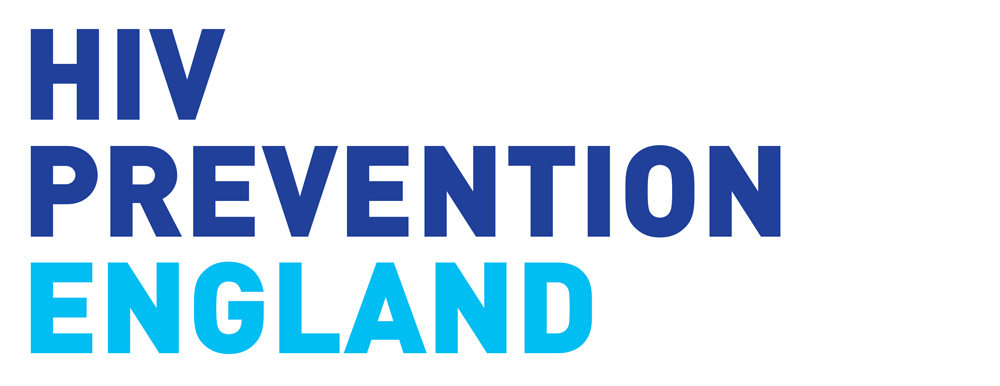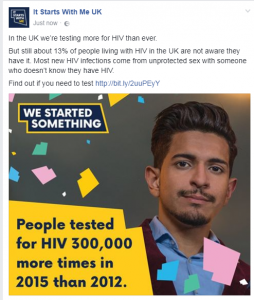If you work for a sexual health or HIV organisation, or a Local Authority Public Health team, you can use these suggested Facebook posts to support the We Started Something campaign.
We Started Something is the summer campaign for It Starts With Me, celebrating the progress that people have made in stopping HIV in the UK and encouraging everyone to continue to play their part.
How to use the suggested posts
1. Go to Facebook and start a new post. Copy and paste the text of one of our suggested posts, including the bit.ly link. It is important to ensure that you copy the link as it leads to a specific page relevant to the call to action of each post.
2. Download the selection of images provided and choose one to share with your post.
3. And… post!
At the bottom of this blog we’ve also included a few email banners for you to use.
Suggested post 1
In the UK we’re testing more for HIV than ever.
But still about 13% of people living with HIV in the UK are not aware they have it. Most new HIV infections come from unprotected sex with someone who doesn’t know they have HIV.
Find out if you need to test: http://bit.ly/2wgNVev
Download images for this post
Suggested post 2
The number of people living with undiagnosed HIV in the UK is the lowest ever.
Most new HIV infections come from unprotected sex with someone who doesn’t know they have HIV, so we can’t stop until everyone is diagnosed.
Find out if you need to test: http://bit.ly/2wgNVev
Download images for this post
Suggested post 3
People are starting treatment sooner than ever.
However, about 39% of adults in 2015 found out they had HIV when it may have already damaged their health. The sooner you find out you have HIV, the better it is for your health.
Find out if you need to test: http://bit.ly/2wgNVev
Download images for this post
Suggested post 4
More people with HIV are on treatment in the UK than ever before and many are now starting treatment early to protect their health and to stop them passing on HIV to others.
Find out more on how treatment is helping to stop HIV: http://bit.ly/2tTYsvk
Download images for this post
Suggested post 5
Someone on effective treatment with an undetectable viral load cannot pass on HIV to others which will help us end the epidemic once and for all.
Find out more on how treatment is helping to stop HIV: http://bit.ly/2tTYsvk
Download images for this post
Suggested post 6
Most new HIV infections come from unprotected sex with someone who doesn’t know they have HIV – so we all need to look after ourselves. Condoms are the best barrier against HIV, other sexually transmitted infections (STIs) and unplanned pregnancies.
Find the best condom for you: http://bit.ly/2w126oC
Download images for this post
Suggested post 7
Most new infections come from unprotected sex with someone who doesn’t know they have HIV – so we all need to look after ourselves. Condoms, treatment and PrEP help to protect from HIV infection.
Find out how to stay protected: http://bit.ly/2uTEbr6
Download images for this post
We Started Something email banners
Simply right-click the banner you prefer and choose the option to save the image to your computer.















